By Vanessa Loughty | July 20, 2023

See why top ecommerce brands use Miva’s no-code platform to run
multiple stores, manage massive catalogs, and grow their revenue.
As manufacturers increasingly pivot towards DTC direct sales and hybrid sales models, the "white label product" is a becoming a proven and popular way to sell more. For consumer-facing ecommerce brands, the appeal of white label ecommerce products is clear—imagine being able to sell a product under your own brand, without the hassle of product development or manufacturing. White label products make this possible, and manufacturers are jumping aboard the trend, selling them to distributors, retail stores, and even directly to consumers. In this blog, we'll look at the benefits of adding white label and private label ecommerce products to your lineup.
White label products are goods which are manufactured by one company and then packaged and sold by third party companies under their own brand names. Produced with blank or generic labelling/packaging, third parties can apply their own branding to items, making the end product appear as though it has been made by the brand selling it. This strategy allows any business, whether it’s a small ecommerce startup or a major retailer, to provide a product which aligns exactly with brand identity and audience, with a fraction of the work required to produce that product. Here are three main variations on the concept:
The "White label" and "private label" terms primarily refer to who is buying the product, and how exclusive that buyer relationship is. White label products are produced by a manufacturer and rebranded and sold by various retailers. These products can often be sold by multiple retailers under different brand names, even though the products themselves are identical.
On the other hand, “private label” products are manufactured as generics which are then exclusively sold by only one retailer. The retailer might have a closer relationship with the manufacturer, perhaps even with a say in the product's production, design, and packaging. Private label products can be more profitable than white labels for the retailer, as they control more aspects of product creation and marketing. Both strategies offer unique benefits for producers and can provide lots of incentives for driving B2B business.
White label sales strategies offer a unique blend of advantages for manufacturers looking to expand their markets and amplify their brand presence. This approach empowers manufacturer businesses to seize opportunities in both B2B and D2C sales channels, all while streamlining operations.
The beauty of white label ecommerce for resellers is that it offers retail/resale businesses an opportunity to expand their D2C sales without the heavy lifting. Sellers are able to rebrand, reprice, and resell a product as their own, allowing them to reach new markets without starting from scratch.
By leveraging the many benefits of white label product sales, merchant-producers and resellers alike can scale their businesses with minimal overhead. These products open up new revenue streams for selling to distributors and resellers, while offering clients the opportunity to build their own brands more easily. For these reasons, white label/private label selling, sitting somewhere between classic B2B sales and D2C ecommerce, are important trends to watch.

Katy Ellquist, Miva’s Digital Marketing Strategist, is an accomplished writer, marketer, and social media analyst who has created sophisticated content campaigns for a broad range of professional clients. She brings to Miva a complex understanding of ecommerce trends and techniques, building upon extensive digital agency experience and a prior role as direct liaison to Miva’s top accounts. Katy is a regular contributor to the Miva blog, covering essential ecommerce topics like design & development strategy, site optimization, and omnichannel selling, with the goal of increasing the actionable knowledgebase of the entire Miva community.
Love it? Share it!
No worries, download the PDF version now and enjoy your reading later...
Download PDF Vanessa Loughty